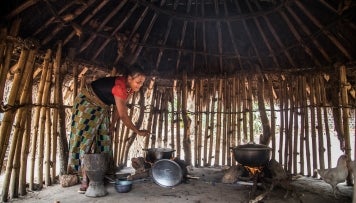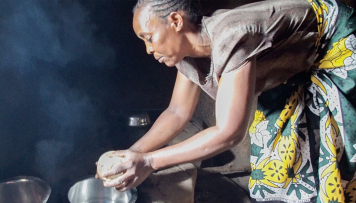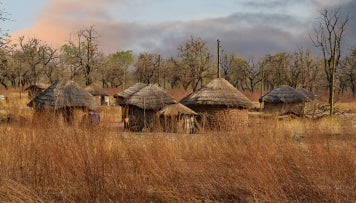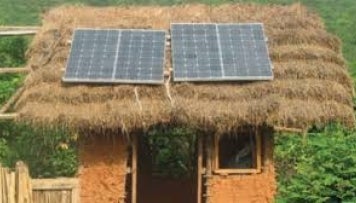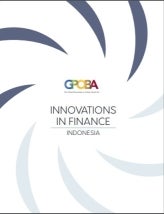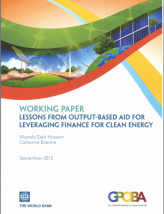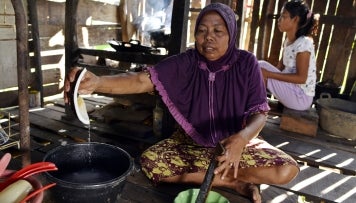
Imagine cooking in a kitchen producing so much smoke, it causes chronic indoor air pollution. Too often this happens in developing countries like Indonesia, where 40 percent of the country’s 60 million households still rely on traditional biomass fuels for cooking. The simple act of preparing a meal can harm the health of cooks, often mothers, as well as their families, especially small children who routinely inhale toxic smoke from burning wood. In fact, household air pollution has been linked to nearly 165,000 premature deaths each year in Indonesia.
There is, however, a cleaner and more affordable solution for these families.
On June 15, 2015, GPOBA co-sponsored a learning event broadcast online on “Understanding User Needs in Developing Clean Stove Technologies.” Its goal was to help devise a clean, innovative solution to the problem of household air pollution by promoting the use of affordable clean stoves through results-based financing (RBF). Several renewable energy and social development experts, as well as World Bank staff, discussed topics such as analyzing household behaviors, exploring socio-cultural trends related to RBF, creating a monitoring system to verify results, and raising awareness of RBF projects.
One such project is the Indonesia Clean Stoves Initiative, the first to use a systematic RBF approach for promoting clean cooking in Indonesia. In December 2014 it was recognized at the GPOBA “Inn-OBA-tions” awards. The project’s RBF framework was supported by two recipient-executed trust funds with the Government of Indonesia and PT Bank Rakyat Indonesia Persero Tbk, one of the largest state-owned commercial banks to manage the RBF fund.
Co-sponsoring the learning event with GPOBA were the Global Practice for Social, Urban, Rural & Resilience (GPSURR), Behavior Change Community of Practice, and the Energy Access Community of Practice.
This event highlights the importance of market-based clean cooking solutions through RBF, as well as incorporating social dimensions and local cooking practices to RBF projects. Ultimately, these strategies give hope for raising cook stove standards as well as improving the health of Indonesia’s population.
